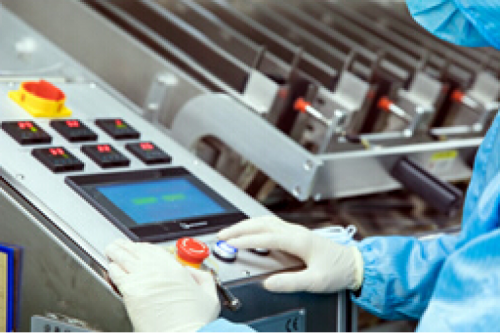Provisions of CIS on Scholarship Awards
Provisions of China Instrument and Control Society on Scholarship Awards
I. General Provisions
China Instrument and Control Society has established the Provisions of China Instrument and Control Society on Scholarship Awards to encourage students in colleges and universities to study assiduously and innovate boldly, as well as to cultivate innovative talents for the development of instrumentation and measurement control in China.
II. Awarding Scope and Levels
The scholarship is awarded to students standing out of the annual selection among undergraduates, master and doctoral students in colleges and universities identified by China Instrument and Control Society Scholarship Review Committee.
Prize levels of the scholarship include:
Special Prize: 1 student (can be vacant), Scholarship: 10,000 yuan;
First Prize: about 25% of the winners, Scholarship: 3,000 yuan (of which undergraduates and postgraduates account for 3/5 and 2/5 respectively);
Second Prizes: several, Scholarship: 2,000 yuan.
III. Selection Procedure
1. Recommendations by schools. At the end of June each year, colleges and universities select students according to the provisions in Part IV, fill in official materials, and send (mail) to Secretary Group of the Review Committee before September 20.
2. Review by the Committee. The Review Committee conducts a centralized review in October each year (Committee members attend the meeting at their own expense).
3. Award presentation. The results will be formally notified in writing to the winning students and their schools, and the list of winners will be published on relevant newspapers, websites of academic societies, and professional websites in the field of instrumentation and measurement control. Secretary Group of the Review Committee will send certificates, medals and prizes to the schools, who can hold award ceremonies separately or jointly.
IV. Eligibilities
1. Possess the spirit of innovation and cooperation.
2. Have high morality and outstanding academic performance.
3. Undergraduates should also meet one of the following requirements:
(1) Students at lower grades must have the practical ability to participate in extracurricular science and technology activities besides obtaining the title of Merit Students.
(2) Achieved outstanding results and awards in scientific and technological competitions at all levels;
(3) Achieved outstanding results and won “Excellent” in scientific research projects such as graduation projects and curriculum designs;
(4) Possessed specific works or innovations in technological production and experimental equipment improvement;
(5) Published papers (including officially accepted ones) in technological publications issued at home and abroad, or read/published papers at national academic conferences;
(6) Made outstanding achievements in social practice, and completed investigation reports or recommendations that have been submitted to relevant departments, adopted or published.
4. Postgraduates should also meet one of the following requirements:
(1) Played an important role in the identification, awards and patent achievements led by supervisors, and made significant breakthroughs or progress in one aspect;
(2) Undertook or participated in specific scientific research projects, accomplished the prescribed design or trial production tasks, and achieved certain creative or phased results under the guidance of supervisors;
(3) Published papers (including accepted ones) in first- and second-level publications at home and abroad, and read/published papers at international conferences or national academic conferences organized by domestic first-level academic societies;
(4) Made important contributions in laboratory construction and experimental equipment transformation, created a certain (set) of experimental device(s) or demonstration system(s) (including software), or developed a new experimental course;
(5) Played an important role in the development, design or technological transformation of a new product or a new technology led by supervisors. The design and technology have been applied to a certain product or by a certain department, as well as accepted and approved by the department; the product has been transferred to relevant enterprises with the transfer contract (including intention agreement) formally signed.
V. Application Materials and Related Matters
1. Fill in China Instrument and Control Society Scholarship Application Form (including academic performance and achievements of the year).
2. Provide copies of proof materials, such as research achievement awards and paper publications, which should be corresponding to contents of the form and clearly marked.
3. Log in to the website of China Instrument and Control Society (www.cis.org.cn) to fill in the application form, and ask the supervisors, class advisors and schools (departments) to fill in the review comments. Download the completed application form, stamp the official seal, and send (mail) to China Instrument and Control Society with proof materials attached. Online applications and paper materials should be consistent.
4. Applicants recommended by schools should be students from different degree programs, and the number of undergraduate applicants should be guaranteed.
5. Students who have received China Instrument and Control Society Scholarship should not apply within 3 years.
6. Sub-awards can be set up under this scholarship after the application by domestic and foreign enterprises, public institutions and social organizations, discussion by the Review Committee, and approval by China Instrument and Control Society.
7. As for the schools that have abandoned scholarship applications or had no student winning the award for two consecutive years, the Review Committee will conduct an investigation on the situation and urge them to improve, and the Committee will pass a resolution to cancel the qualification of the school if they do not change.
VI. Selection Organizations
1. Scholarship Review Committee: The Scholarship Review Committee is the leading organization that discusses and decides on important issues. The members are appointed by the Board of Directors of China Instrument and Control Society. The Committee consists of a review group and a secretary group, which are in charge of reviewing the applications for the scholarship. The secretary group has 1 or 2 persons handling daily affairs.
2. Schools Awarding the Scholarship. Currently, there are 23 schools where the scholarships are awarded:
Tsinghua University, Tianjin University, Chongqing University, Zhejiang University, Southeast University, Huazhong University of Science and Technology, Hefei University of Technology, Xiamen University, Beijing University of Aeronautics and Astronautics, Shanghai Jiaotong University, Harbin Institute of Technology, Xi'an Jiaotong University, Changchun University of Science and Technology, University of Electronic Science and Technology of China, Xidian University, Shanghai University, Harbin University of Science and Technology, Huaqiao University, Beijing Institute of Technology, Shenyang University of Technology, University of Shanghai for Science and Technology, China Jiliang University, and Sichuan University.
VII. Source of Funding
Scholarship funding is provided by China Instrument and Control Society and seeks to be sponsored by relevant units.
China Instrument and Control Society
Scholarship Review Committee
June 2009



